|
|||||
|
Welcome to part 4 of Yesterland’s “then and now” series about Disney California Adventure. Part 3, featuring Paradise Pier, promised a follow-up article with more Paradise Pier comparisons. Here it is! Today, Yesterland looks at more of Paradise Pier in 2002 and 2013.
|
|||||
|
|
|||||
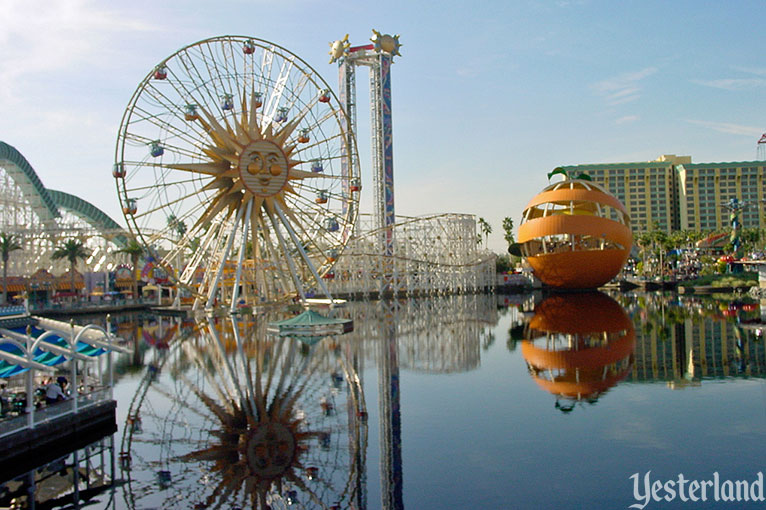
Photo by Allen Huffman, 2002 Looking west (2002) |
|||||
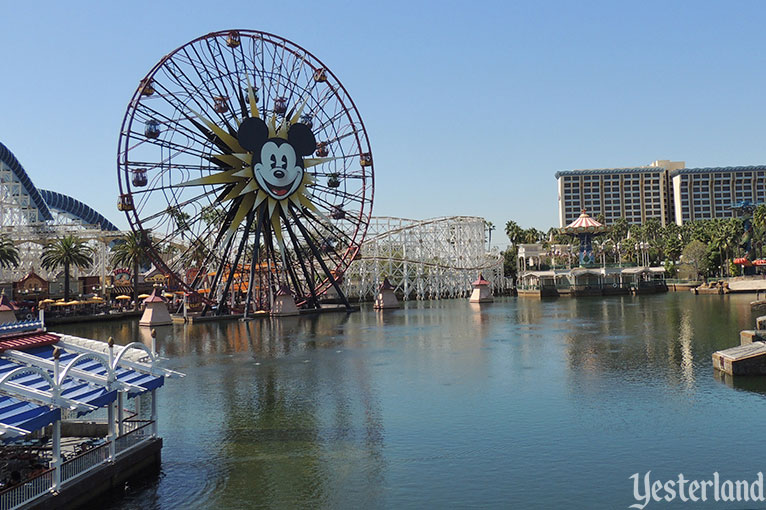
Photo by Werner Weiss, 2013 Looking west (2013) |
|||||
|
The big differences between 2002 and 2013 above are the elimination of the Maliboomer, the Sun Wheel transformed into Mickey’s Fun Wheel, and the Orange Stinger transformed into Silly Symphony Swings. More subtle differences include the improved colors on the Paradise Pier Hotel, new façades on Games of the Boardwalk, and structures in the water for World of Color. |
|||||
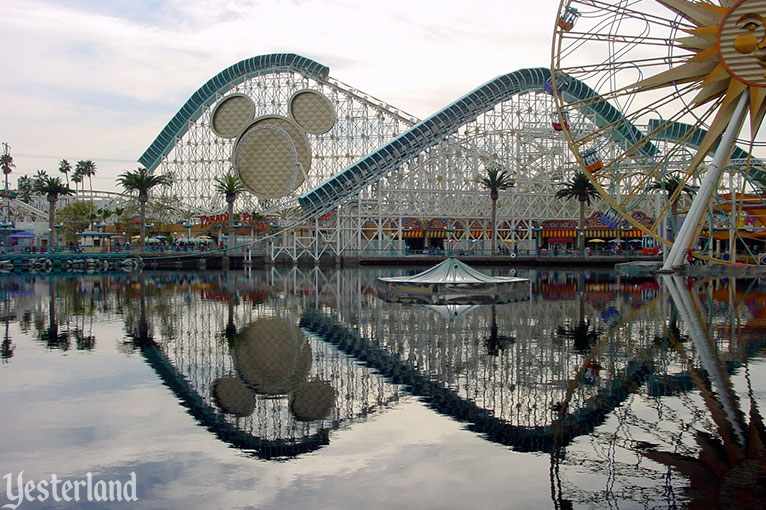
Photo by Allen Huffman, 2002 Looking south (2002) |
|||||
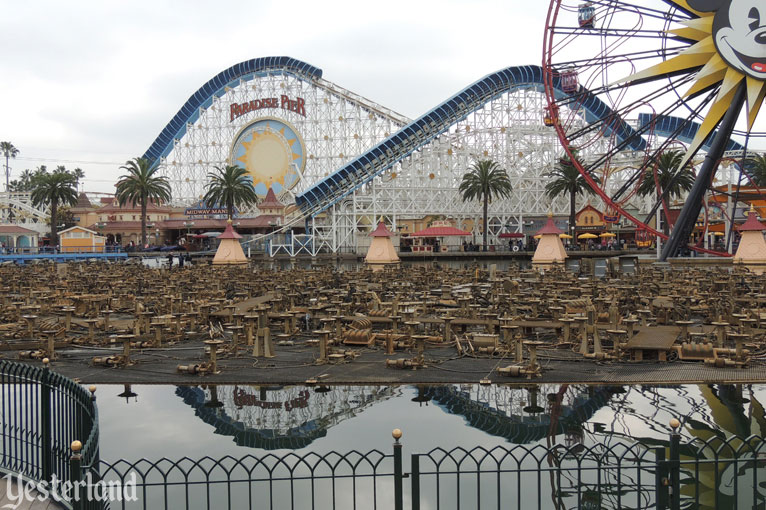
Photo by Werner Weiss, 2013 Looking south (2013) |
|||||
|
The loop on California Screamin’ and the art at the center of Mickey’s Fun Wheel reflect the period of California’s early 20th century amusement piers better in 2013 than in 2002. Unfortunately, the World of Color fountain infrastructure—which is supposed to disappear below the surface of the lagoon during the day—robs the lagoon of much of its charm when it’s not underwater. |
|||||
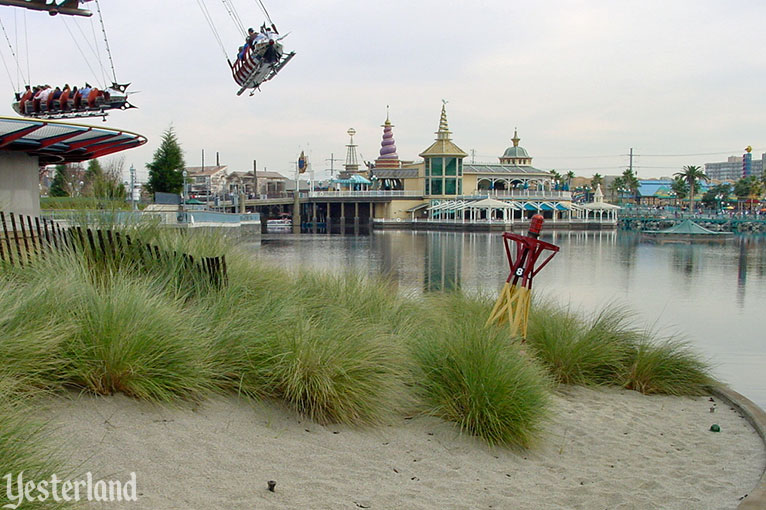
Photo by Allen Huffman, 2002 The “beach” behind Jumpin’ Jellyfish (2002) |
|||||
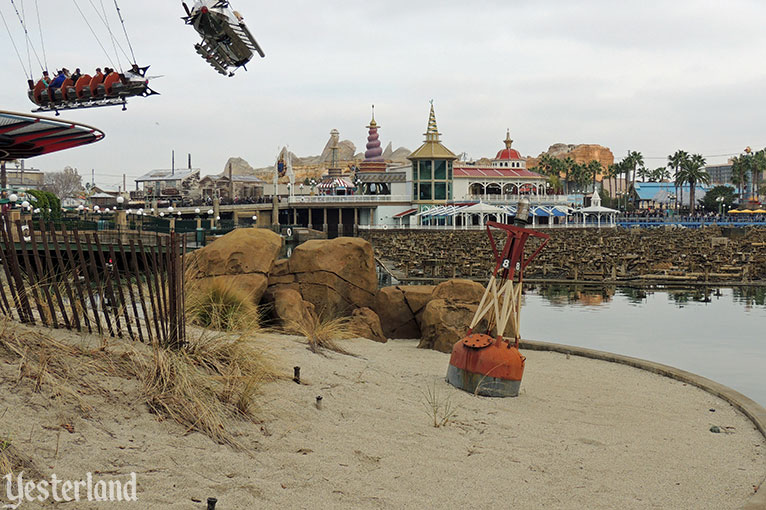
Photo by Werner Weiss, 2013 The “beach” behind Jumpin’ Jellyfish (2013) |
|||||
|
The two photos above are a rare case of 2002 indisputably looking much better than 2013. It begins with the plants of the sandy beach landscaping. Once again, the big eyesore in 2013 is the exposed World of Color fountain infrastructure. |
|||||
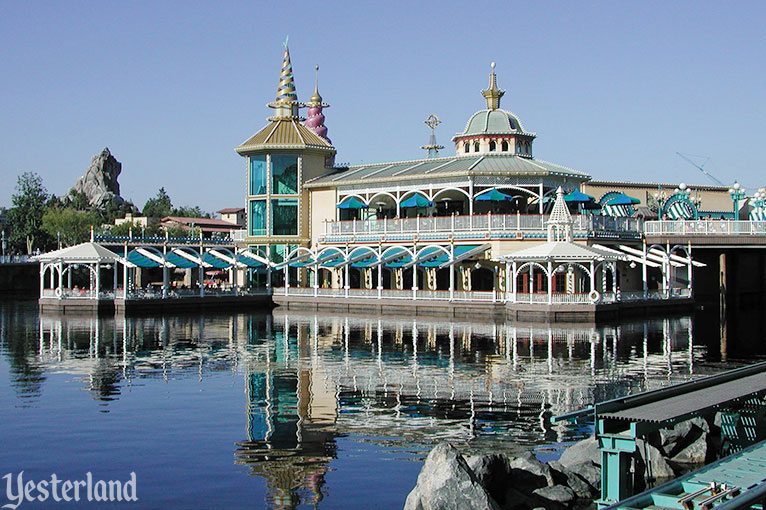
Photo by Allen Huffman, 2002 Restaurant pavilion (2002) |
|||||
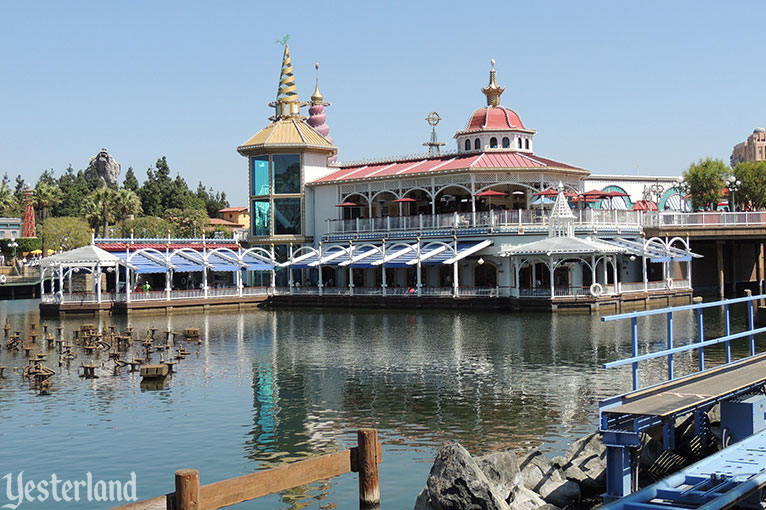
Photo by Werner Weiss, 2013 Restaurant pavilion (2013) |
|||||
|
The restaurant pavilion—originally Wolfgang Puck’s Avalon Cove and now Ariel’s Grotto—looks about the same in 2002 and 2013, except for its color palette. The building’s architecture fits in reasonably well with the early 20th century amusement pier theme, but it could be improved. The tallest tower, with its giant plate glass windows and conical spiral at the top, would benefit from a redesign. The “raspberry swirl ice cream” tower above the main entrance is slightly more appropriate, but could be better. |
|||||
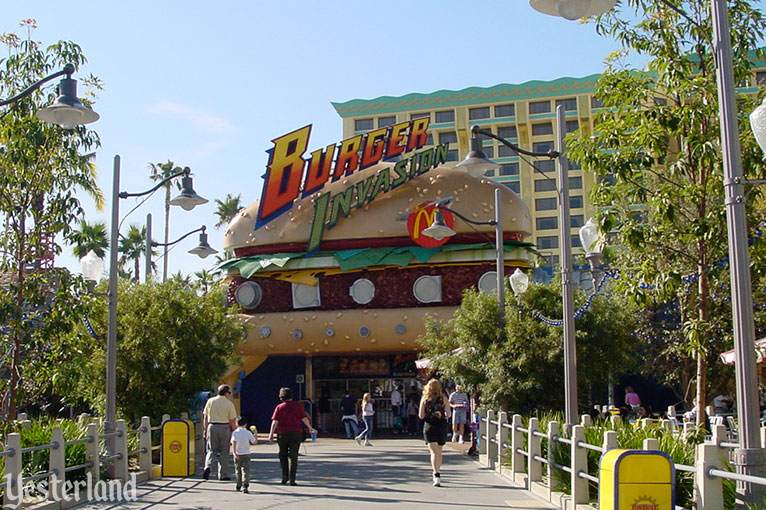
Photo by Allen Huffman, 2002 Burger Invasion (2002) |
|||||
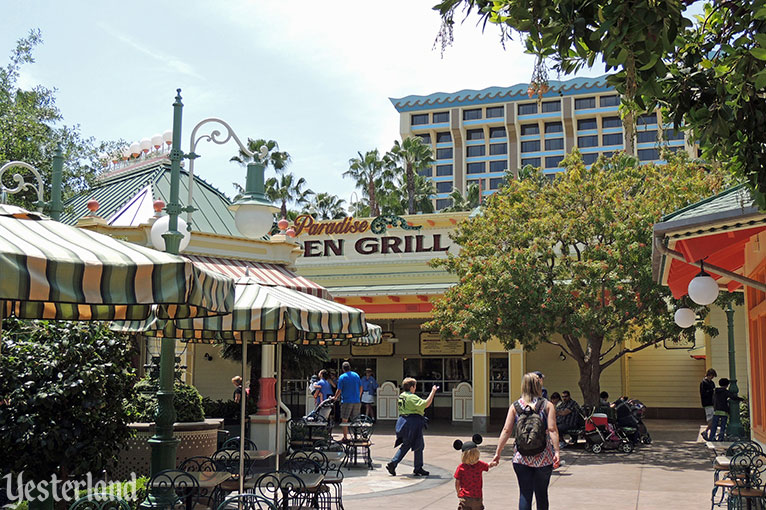
Photo by Werner Weiss, 2013 Former Burger Invasion, now Paradise Garden Grill (2013) |
|||||
|
When Paradise Pier originally opened, one part of this “land” was supposed to represent Route 66, the famous road that once ran from the Art Institute of Chicago in Illinois to Santa Monica Pier in California. The stretch with Pizza Oom Mow Mow, Burger Invasion, Dinosaur Jack’s Sunglass Shack, Corn Dog Castle, and Souvenir 66 was utterly unconvincing as a well-traveled road from before the era of Interstate Highways or as a collection of businesses one might find along that road. |
|||||
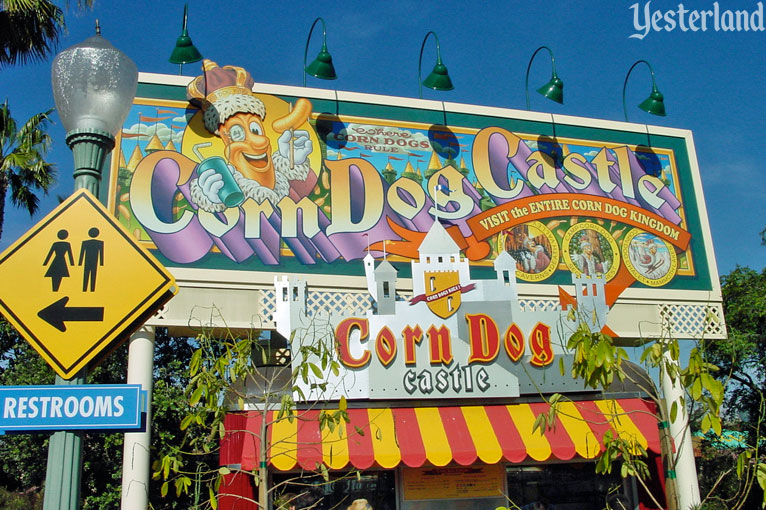
Photo by Allen Huffman, 2002 Corn Dog Castle (2002) |
|||||
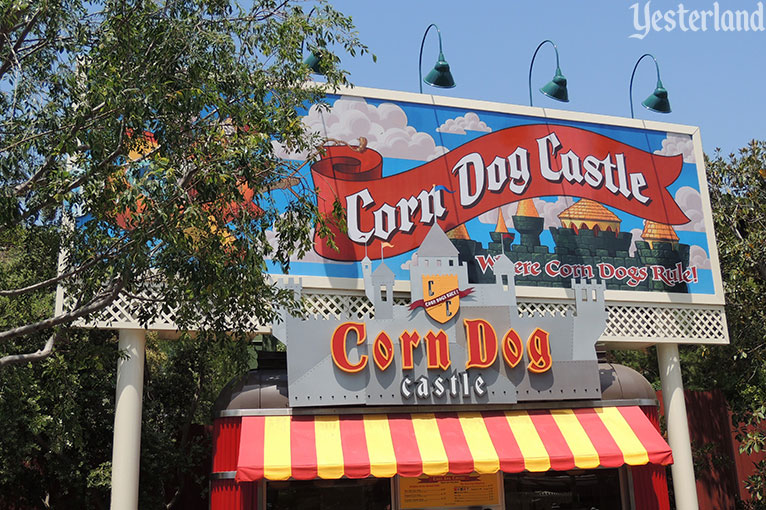
Photo by Werner Weiss, 2013 Corn Dog Castle (2013) |
|||||
|
The main difference between Corn Dog Castle of 2002 and Corn Dog Castle of 2013 is the billboard—despite being closed for two years during the transformation of this corner of Paradise Pier. |
|||||
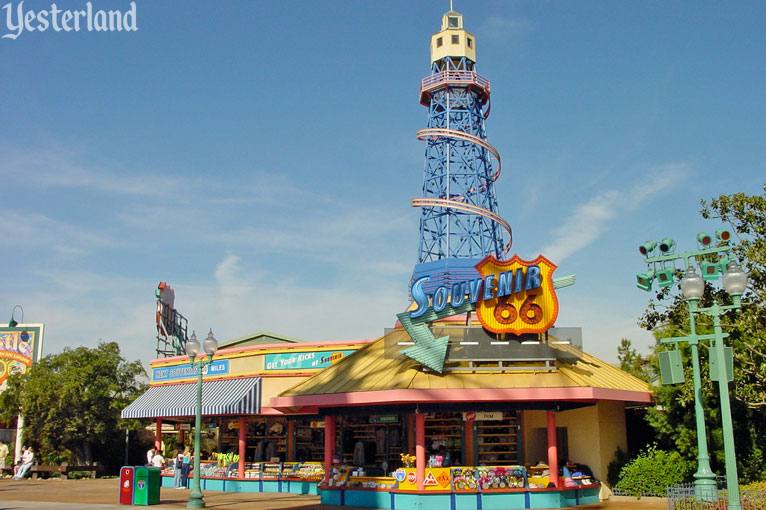
Photo by Allen Huffman, 2002 Souvenir 66 (2002) |
|||||
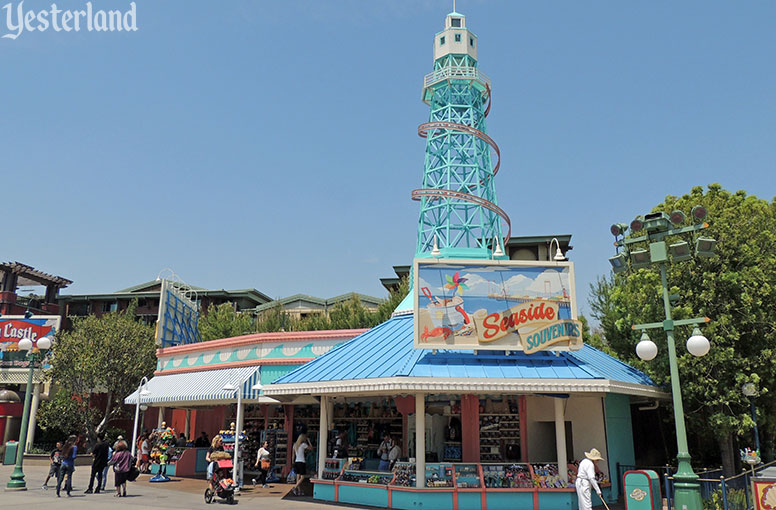
Photo by Werner Weiss, 2013 Former Souvenir 66, now Seaside Souvenirs (2013) |
|||||
|
Souvenir 66 became Seaside Souvenirs, with new colors, new signage, and elimination of the Route 66 reference. Now Disney California Adventure has a new Route 66—Cars Land—which succeeds magnificently in capturing the look and feel of a small desert town along the Mother Road. Meanwhile, at the old stretch of Paradise Pier, the fiction of being Route 66 has been eliminated—except for the tile work in the rest rooms next to the Paradise Garden Grill. |
|||||
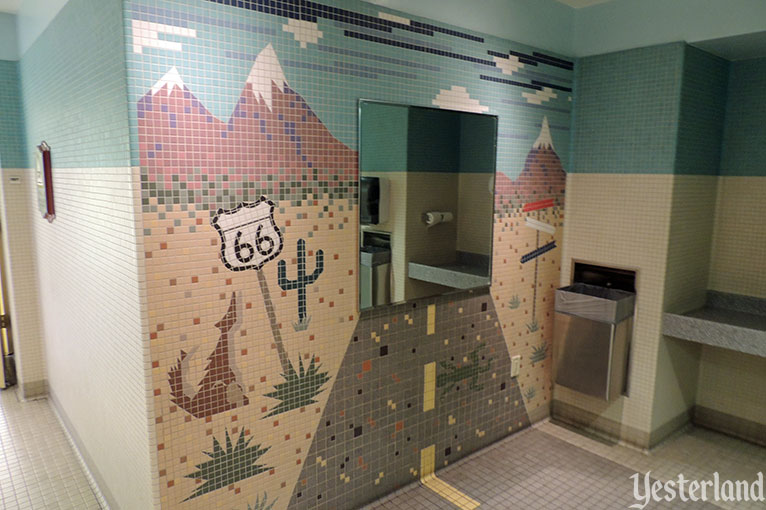
Photo by Werner Weiss, 2013 Men’s room adjacent to Paradise Garden Grill (2013) |
|||||
|
Books Recently Reviewed at Yesterland Did you read the reviews of The Disneyland Story by Sam Gennawey (reviewed November 15, 2013) and The Book of Mouse by Jim Korkis (reviewed November 22, 2013)? |
|||||
|
|||||
|
|
Click here to post comments at MiceChat about this article.
© 2013 Werner Weiss — Disclaimers, Copyright, and Trademarks Updated December 20, 2013. |
||||
